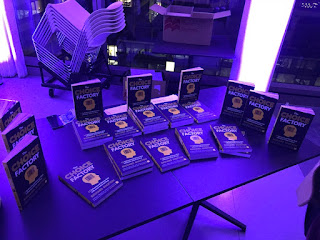What people want, cognitive goods, models of persuasion and why we avoid important information: the cognitive economics session at the AEA conference
For the first time, there will be a session on Cognitive Economics at the American Economic Association’s conference. The conference, in association with the ASSA, is taking place from Friday 4 January to Sunday 6 January and will be a hugely interesting programme over the long weekend. The Cognitive Economics session will take place on Sunday 6 January 2019 at 8-10am in Atlanta Marriott Marquis, International 10. I hope that any readers who are attending the conference are able to come along! Let’s give you a quick overview of the session: Dan Benjamin , University of Southern California; Kristen Cooper , Gordon College; Ori Heffetz , Cornell University and Hebrew University of Jerusalem; Miles Kimball, University of Colorado Boulder will be presenting a paper on What Do People Want? On the use of large-scale surveys to estimate multidimensional indifference maps over "fundamental" goods that include mental states such as emotions, perceptions and beliefs: answerin...
